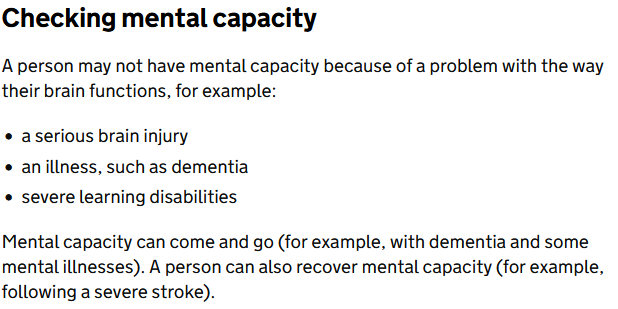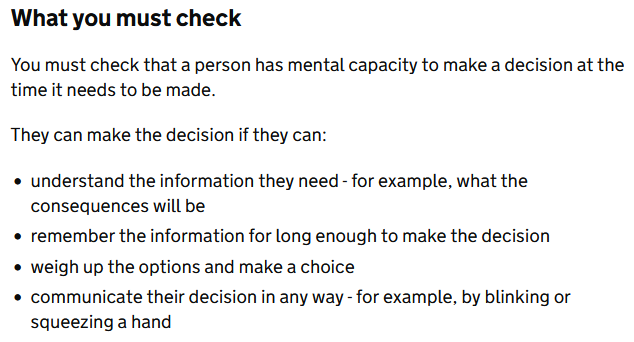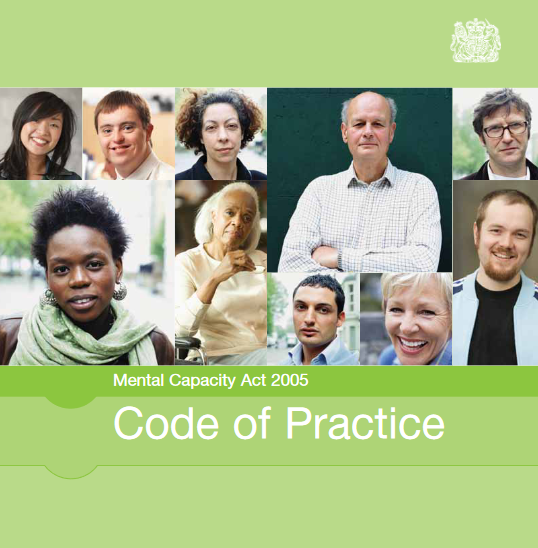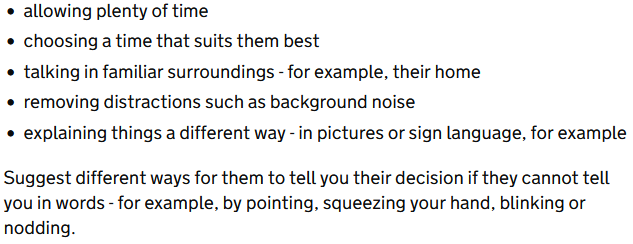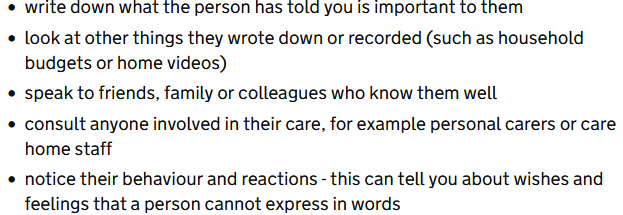Lasting Power of Attorney: Decision Making for someone else
For a free 15 minute consultation to discuss your Lasting Power of Attorney please Speak To Me here.
In a series of blogs, I am sharing commonly asked questions about Lasting Power of Attorney. These have included what to do what to do following the registration of a Lasting Power of Attorney, how to use the digital service and what to do if you or an attorney change address. In an earlier blog I have also reflected on the capacity to make a Lasting Power of Attorney, this blog moves on to address how to assess capacity and make decisions on behalf of someone else once a Lasting Power of Attorney has been registered.
What is a Lasting Power of Attorney?
A Lasting Power of Attorney is a legal document enabling someone to appoint a person or people to speak for them in case they ever lost the ability to speak for themselves due to illness or sudden accident. The Property and Finance Lasting Power of Attorney can take effect, with the donor’s consent, from point of registration, however the Health and Welfare Lasting Power of Attorney will only take effect if the donor is unable to make decisions.
How do you know if someone has the ability to make decisions?
The legal framework for a Lasting Power of Attorney is the Mental Capacity Act 2005. The act sets out principles which must be followed when checking for mental capacity.
Checking mental capacity to make decisions
It is not permissible to decide a person lacks capacity simply because the appear to make a bad or strange decision, or to make a decision for someone if it can wait until they have capacity to do it for themselves.
You can ask a doctor, or another medical professional to assess capacity and whilst a person may have capacity for day to day decisions, they might lack capacity for decisions like where to live. The Mental Capacity Code of Practice is available as a useful guide.
How to make decisions
A deputy or an attorney, making decisions for someone else must:
Helping someone make decisions
A person should have all the information they need to make a decision in a format they can understand. Information should be provided in a clear way, enabling them to understand and weigh up the consequences of the decision.
The following examples can support a person in understanding and weighing up information:
Making a decision in someone’s best interests
Any decision made for a person who lacks capacity must be in their best interests or the right decision specifically for them. It is important to consider:
· What they would have decided with capacity
· Their past and present values and wishes
To support someone make a decision it can help to:
It is important not to make assumptions based on age gender, ethnic background, sexuality, behaviour or health. A person’s human and civil rights should be restricted as little as possible.
A full framework for best interests can be found in the Mental Capacity Act 2005
Talking about what matters most
It can be difficult to think ahead to a time when, as an attorney, you might need to make a decision for someone else. The legal frameworks and responsibilities have been set out in this blog, but alongside the formal frameworks, it is the ongoing conversations that matter. One way of finding out information can be through Joy Lists as I found out in a great conversation with conversation with Andrew Saunderson.
I’ll leave you with a challenge; if you are an attorney for someone find out what matters most to them.
To find out more about how I support people in making a Lasting Power of Attorney contact me.
Information from the GOV.UK site https://www.gov.uk/make-decisions-for-someone/making-decisions has been used in writing this blog.

